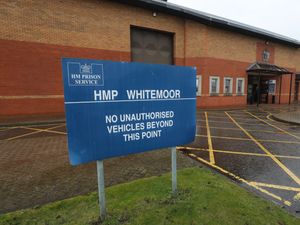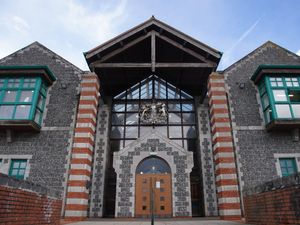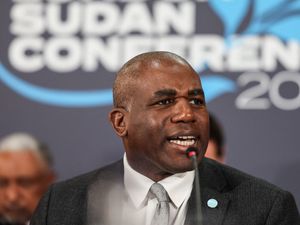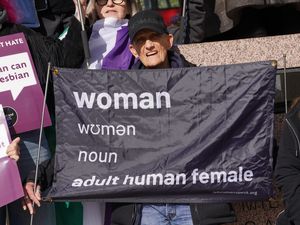High Court case against Andrew Tate believed to be legal first, judge told
Four women, who cannot be identified, are suing Andrew Tate over allegations of sexual violence, which he denies.
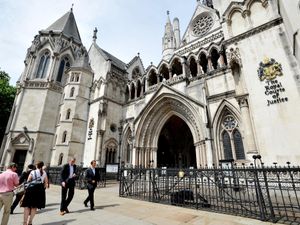
The case of multiple women taking High Court legal action against social media influencer Andrew Tate is believed to be a legal first, a judge has been told.
Four women are suing Tate over allegations of sexual violence, including one who claims the former professional kickboxer grabbed her by the throat on a number of occasions in 2015, assaulted her with a belt and pointed a gun at her face.
In written submissions for a hearing on Tuesday, Anne Studd KC, for the women, said the case “is understood to be the first claim where allegations of coercive control have been considered in a civil context of whether that behaviour can amount to intentional infliction of harm”.
Tate has previously described the allegations as “unproven and untested”, with the court told there was a “total denial of any wrongdoing”.
The hearing in London, before Judge Richard Armstrong, is dealing with preliminary matters, including disclosure and legal costs, but the judge said the claimants were “seeking damages likely to reach six figures”.
The court also heard that a trial of the claims could be held in early 2027 and could last three weeks.
In written submissions, Ms Studd said coercive control was “a form of grooming and manipulation where the victim becomes less and less able to respond in what might be perceived as a normal way, in particular, she may not leave even if the door is open”.
She added: “The claimants aver that behaviour identified as coercive control can in law give rise to a claim for intentional infliction of harm in tort and thus sound in damages.”
Ms Studd also said that the allegations against Tate were likely to be “significantly contested” by him, stating: “First, he aims to deny many of the allegations made, and secondly, it will follow that he will argue that whatever facts are proved do not in fact amount to coercive control.”
In court, she said both sides planned to take evidence from forensic consultant psychiatrists, and also asked for further expert evidence on coercive control to be provided in the case.
Ms Studd said: “It is really important that the court has the whole picture here.
“There is a very big concern that this is not going to be evidence which is in the knowledge of the court, and therefore the expert’s opinion is going to be vital to enable the court to consider the issues.”
She continued: “The defendant has a profile, largely made by himself, where he regularly discusses issues of violence against women and girls and misogyny, and gives his seemingly high-profile support for behaviours of that type.”
Vanessa Marshall KC, for Tate, told the court that further expert evidence was “unnecessary expertise”, adding that the trial would be overseen by a judge who would be “entirely competent to deal with the issues”.
She said: “We accept in this day and age that coercive and controlling behaviour does exist.”
She continued: “We are not going to be saying for one moment that women subject to sexual abuse or assault could never suffer from being coerced and controlled, but that is really not the issue in this case.”
Ms Marshall also said that, as well as the four women giving evidence, “there may well be a further 11 witnesses of fact in support of the claimants’ case”, and that Tate “will be seeking to call about 11 witnesses as well”.
Judge Armstrong said the case concerned “serious allegations” and allowed the women to rely on evidence from one expert, but refused to allow them to rely on another.
The four women, who have made allegations such as rape and sexual assault against Tate, are bringing a civil case against him at the High Court after the Crown Prosecution Service decided not to prosecute in 2019.
Three of the British accusers were the subject of an investigation by Hertfordshire Constabulary, which was closed in 2019.
In court documents, one woman suing Tate claimed he “would strangle her or grab her by her throat if she spoke back to him or said anything that he did not like… until she told him that she loved him or apologised for whatever he demanded at the time”.
She said he, and his brother Tristan Tate, “played good cop and bad cop to manipulate her”, and that Tate allegedly put her in a headlock or whipped her with a belt if she did not get out of bed and do work for his webcam business.
The documents also allege Tate “had weapons, including firearms, which were often pointed at her” and that he had “indicated to her that he would like to kill someone if he could”.
Tate said that her account was “fabrication” and a “pack of lies”.
In a statement, a spokesperson for Tate previously said: “He denies ever threatening anyone with a firearm, engaging in non-consensual acts or subjecting any individual to physical or psychological harm.
“These are civil claims, brought years after the alleged events and following a CPS decision not to pursue criminal charges. It is deeply troubling that such graphic and one-sided accounts are being publicised before any judicial assessment has taken place.”
The statement added: “Mr Tate will defend himself vigorously and remains confident the truth will prevail.”

